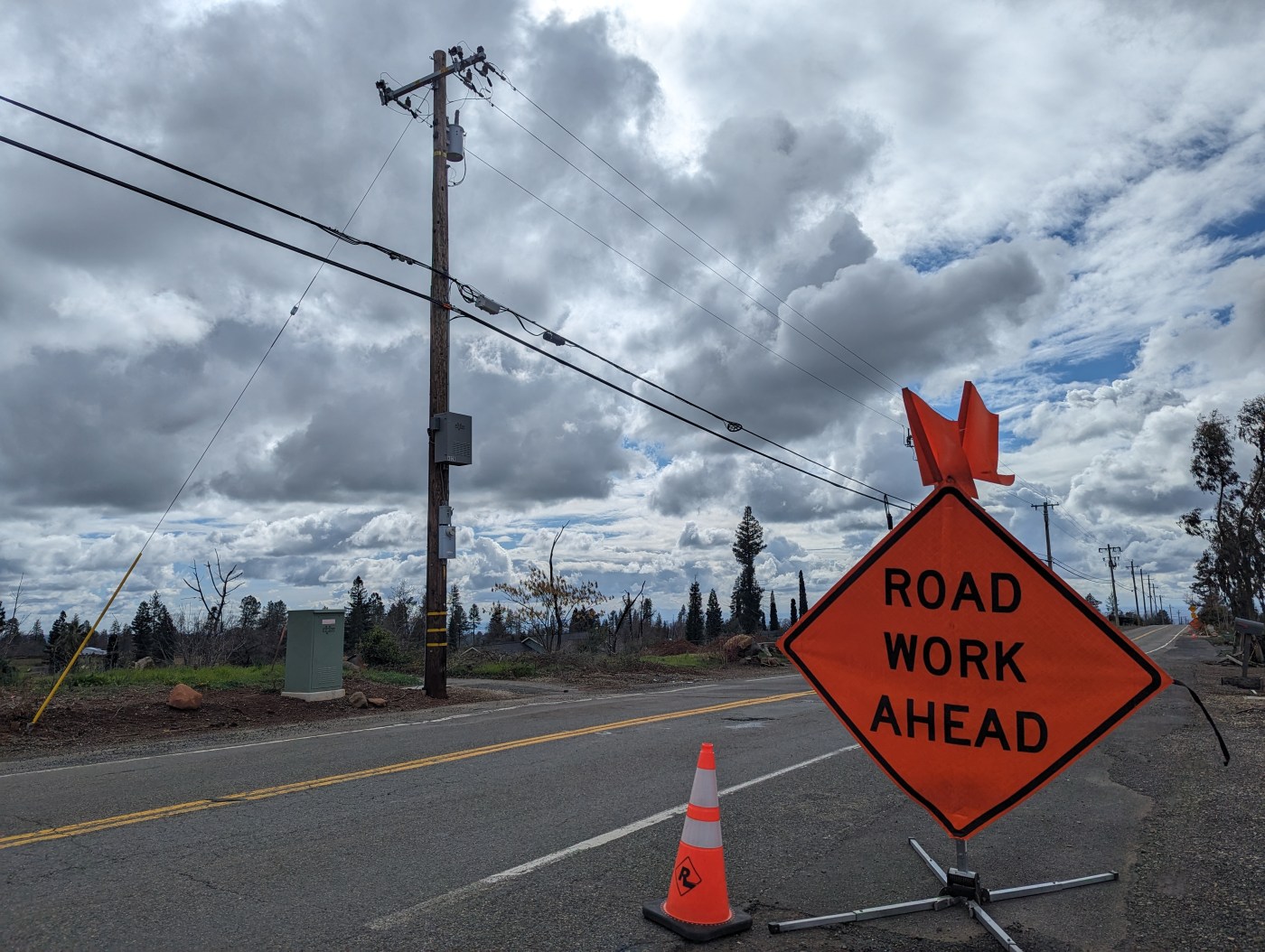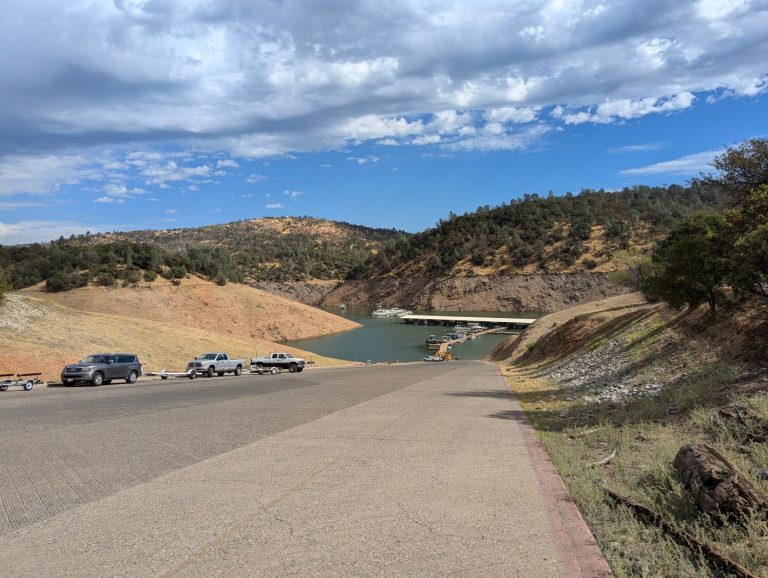OROVILLE — In a move that could affect millions of Californians, AT&T is looking to end its requirement to provide landline phone services throughout the state.
In its request to the state to allow it to move away from traditional telephone services, the company provided a list of locales it plans to withdraw from. Nearly all of Butte County was on the list including both incorporated and unincorporated regions along with their surrounding areas.
This extended to all California counties including Glenn and Tehama.
The request created a stir among rural communities that don’t have reliable cell reception, are lacking quality internet services and frequently see major weather events and disasters.
Recently, the Butte County Sheriff’s Office went as far as to ask the county Board of Supervisors to pen a letter to the state of California opposing AT&T’s request. Sheriff Kory Honea cited public safety concerns given Butte County’s extensive history with both natural disasters, severe weather events and the need for clear communication to residents in the event of an emergency.
AT&T’s request
In the executive summary of AT&T’s request to California, it states that the company is moving away from traditional landlines in favor of newer technologies. It also states that it is not looking to completely relieve itself of its Carrier of Last Resort Status yet.
“For the few customers who currently lack an alternative to AT&T California’s basic voice service, AT&T California would continue offering voice service on the same terms as before until an alternative becomes available,” the summary reads.
AT&T spokesperson Chris Collins said the number of basic telephone service customers has dropped overall, adding that AT&T does not yet plan to immediately shut down basic telephone service.
“There’s been a dramatic, and continuing, decline in the number of customers who subscribe to our traditional landline voice service over the last two decades,” Collins said. “We are not canceling landline service in California, and none of our California customers will lose access to voice service or 911 service. We are focused on enhancing our network with more advanced, higher-speed technologies like fiber and wireless, which consumers are increasingly demanding over outdated copper-based services. No customer will be disconnected, and we’re working with the remaining consumers who use traditional landline service to upgrade to newer technologies.”
Public safety concerns
Honea recently sat in on a meeting consisting of local law enforcement leaders and representatives of AT&T. The sheriff said he learned of the company’s concerns regarding the cost of phone line upkeep in a world where technology is rapidly changing and older parts are increasingly hard to come by.
While Honea said he sympathized with AT&T’s claims, the potential risk in terms of public safety was too high.
“In many respects, we’ve become over reliant on newer forms of technology and don’t realize how fragile those systems are, “Honea said. “Obviously this request by AT&T to move away from providing landline service, especially in remote, rural areas, causes me a lot of concern. There’s a tendency for people to get lulled into a false sense of security with technology.”
Honea said for many, cell phones and data work as intended for most living in incorporated areas, but problems arise in areas where cell towers aren’t close enough to be reliable.
“On a day-to-day basis, it works well,” Honea said. “The problem is that there are parts of California and Butte County where infrastructure for that technology isn’t as robust as some urban areas. If they lose their landlines, they lose the ability to communicate with us in emergency situations. Add on top of that the need for power to run the Voiceover Internet Protocol system. Even if they are able to get service, if they lose power they lose phone service, even in situations like a (public safety power shut-off) event.”
Given Butte County’s history of disasters and near disasters, a web of local agencies has come together in recent years to formulate clear emergency evacuation and communication plans that span across multiple platforms. Honea said this system relies on having as many means of communication as possible, including traditional landlines.
AT&T brand Landline phones for sale at Ace Hardware in Chico, California on Thursday, Feb. 15, 2024. (Jake Hutchison/Enterprise-Record)
“The last piece that causes me concern is that my experience with disasters has taught me that in emergency situations, trying to alert people and warn them of a threat requires messaging across multiple platforms. Even with all that, we can’t be guaranteed to get the message completely across but in those rural areas that don’t get good cell service, sometimes the best platform is standard, traditional landlines.”
Those affected
For Suzanne Wakim of Magalia, having a steady landline service is a make-or-break deal.
In the 2023 winter, when heavy snow fell over Paradise and Magalia, Wakim was snowed in and couldn’t leave her home. She relied on only her landline as her internet and power failed under a blanket of frost.
“I live in a place with no cell service,” Wakim said. “I do have a cell phone and as long as my Wi-Fi is working, I can connect to service, but I don’t get actual cell reception at all. If something were to happen to me, I have no way to call out to get emergency services for whatever it might be. It would cause legitimate safety concerns for me.”
Wakim went on to say that the loss of landline services could prompt her to move somewhere with a better system for communication.
“It’s unconscionable to leave people trapped like that, especially with everything we’ve been dealing with around here,” Wakim said.
Oroville residents Ed and Linda Hemsley, who live in the Skyline-LaMiranda neighborhood east of Oroville and southwest of the Kelly Ridge neighborhood, said while they have a cell phone they depend on their landline for the majority of their calls.
“We don’t get very good cell service here, sometimes just one bar so we can get or send a text but not calls,” said Linda Hemsley. “It would not work for us at all to not have a landline. We don’t like this idea.”
Donna LaGrone, a senior citizen who lives just outside Oroville city limits, said she is not happy about the prospect of losing her landline.
“I do not want my landline taken away. I like it and find it useful,” said LaGrone. “I have much more confidence in my landline than I do my cell. I think many people in the older generation, including myself, feel more comfortable with a landline than they do a cell.”
For Jeanne Cecchi, owner of Grey Fox Vineyards in east Oroville, the prospect of losing her residential landline would be an inconvenience, but losing the winery’s landline would cost her small business money.
“It would be a real problem and entail extra business expenses,” said Cecchi. “I’d have to get a cell for the business and, just like every other business, I’d have the additional cost of getting all my printed stuff — signs, billboards, business cards and other marketing materials — completely redone. Changing all that would be very expensive. I don’t understand why they want to do this. It’s just ridiculous.”
Cecchi also said that the winery uses a separate landline for its fax machine which the business uses regularly as a more secure form of communication for customer orders and other business because “it is more secure than email.” The facility’s landline also operates the winery’s front gate.
Enloe Health began moving off its landline-dependent phone system and “migrating” to modern technology about five years ago.
“I would say that 99.5%, the vast majority of our communication circuits and design have been off landlines and on modern fiber optics capabnnility for about three years,” said Chris Webb, Enloe Health director of technology. “Our organization works hard to keep critical services modern and secure. This strong proactive work keeps us up-to-date and greatly reduces the impact on operational services when something like this comes up.”
While Webb said he couldn’t speculate about what the CPUC’s final decision regarding AT&T’s request to withdraw as the carrier of last resort will be, he did say if the utility commission does grant the phone company’s request it will have “minimal to zero effect on Enloe’s communication capabilities.”
Many with worries over the potential agreement have turned to local organizations like the Butte County Fire Safe Council, which has connected residents with others to come up with alternative solutions. Fire Safe Council member Jim Houtman said his organization helps facilitate meetings with companies and services to find a plan.
“We have a collaborative group that meets on a regular basis on wildfire protection and forestry needs,” Houtman said. “And we have a lot of connections so trying to make sure that all the pieces are put together and help them subvert disaster.”
Local opposition
The Butte County Board of Supervisors sent a letter to the California Public Utilities Commission opposing the company’s request, citing safety concerns in emergency events as well as power outages. AT&T is considered by the state to be a what it calls a “carrier of last resort,” which means the company has an obligation to provide what is referred to as “plain old telephone service.”
In the letter, the county cites the numerous incorporated, unincorporated and rural areas throughout Butte County that rely on landlines, especially in places with weak to no cell reception.
“Many of these localities lack alternative telecommunications options and have poor to no cellular service,” the letter reads. “In fact, it is estimated that 37,711 households within the affected areas only have access to AT&T’s existing copper network. When alternatives do exist, these alternatives are often not affordable and do not have commensurate regulatory treatment or consumer protection.”
Butte County Undersheriff Matthew Calkins brought the item before the board and said the Sheriff’s Office has concerns with the request as well when conducting its duties.
“Primarily, the Sheriff’s Office is concerned about two different things,” Calkins said. “First, our ability to reach citizens in our rural areas that rely on traditional landline services to receive emergency alerts and communicate with emergency services. That’s part of a layered system. If we rely on only one form of notification, whether that be cellular, internet or landline, we’re missing out on a lot of people. Having redundancies and having overlapping systems is extremely important to reaching the most people possible in the event of an emergency.”
Calkins said the second cause for concern is that many residents in the county rely solely on a landline for everyday emergencies and the ability to call 911.
“By losing that ability, many of those people will not have a reasonably feasible alternative,” Calkins said. “Cellular does not reach a number of areas in Butte County.”
The board’s letter closes calling for a rejection of AT&T’s request.
“It is essential for customers to retain, at their option, resilient communications services such as (plain old telephone),” the letter reads. “(Carrier of last resort) relief should not be granted without securing widespread alternatives with uniform, technologically neutral minimum service quality standards. For these reasons, we ask the (California Public Utilities Commission) to reject AT&T’s application.”
While Supervisor Bill Connelly said he understood from a business perspective AT&T’s request to withdraw as the designated carrier of last resort from certain areas of the state including those within his own district, he expressed concern the result of the move would be an inability for people to reach emergency services.
“I understand that part of the issue is providing landline services to areas where there are very few customers. It’s not a good business model because there’s no return on investment,” he said. “However in many of these areas that they are talking about pulling out of, like Berry Creek, Feather Falls and Forbestown, there are (cellular) dead areas and landlines are people’s only means of communication.”
Connelly went on to say that if the Public Utilities Commission approved the phone company’s request, then AT&T should provide some other reliable service to customers including increased cell towers or at the “very least” battery-operated FM receivers.













+ There are no comments
Add yours